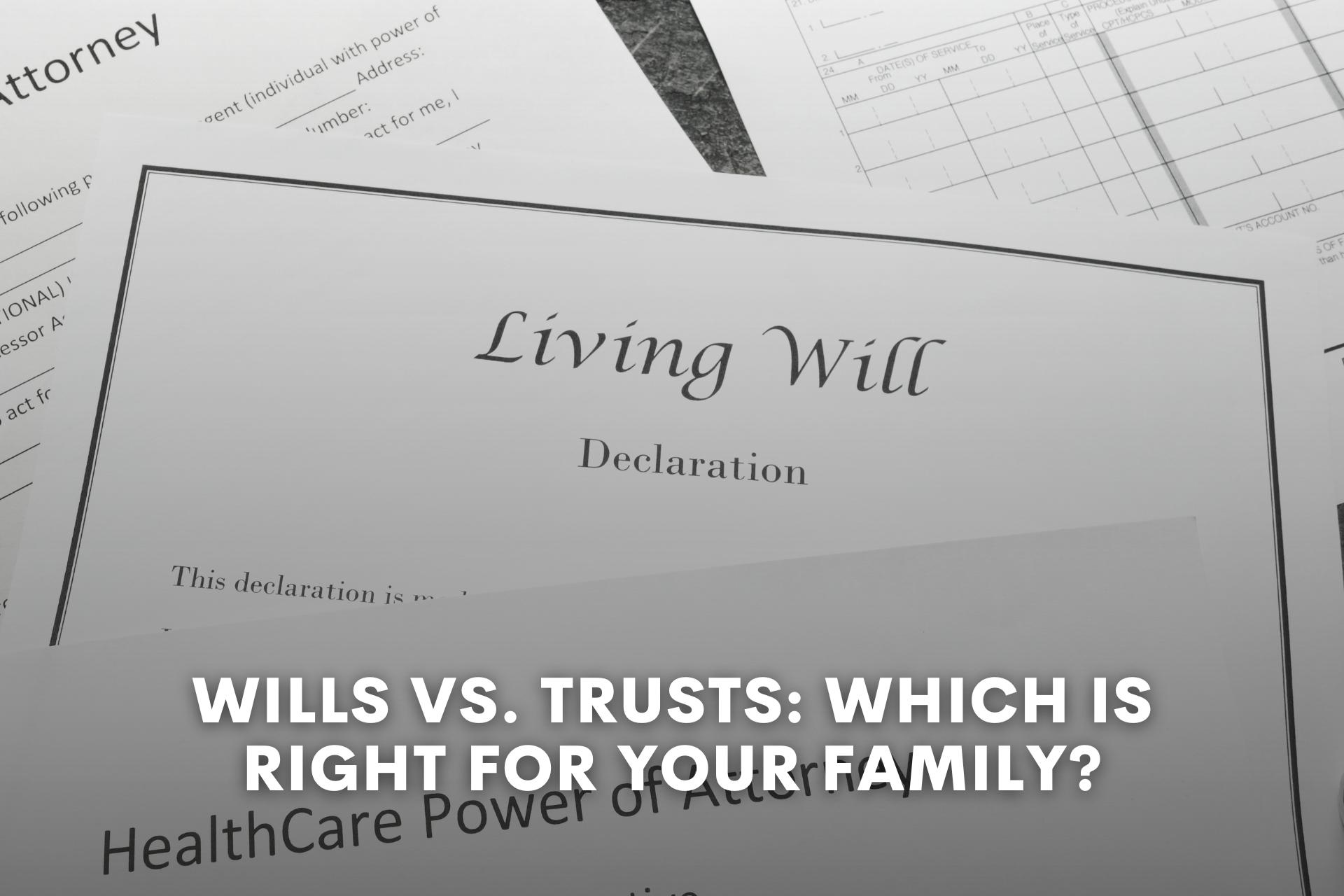Two of the most common estate planning options are wills and trusts.
Both serve a specific purpose – ensuring your assets are distributed based on your wishes.
However, how they work differs significantly, and in this blog, we’ll help you understand these differences so you can make the right choice for your family by addressing:
- What’s a will?
- Pros and cons of a will
- What’s a trust?
- Pros and cons of a trust
What’s a Will?
A will is a legal document outlining the distribution of a person’s assets after death.
This document also designates guardians for minors, funeral arrangements, and the appointment of an executor to monitor the distribution of your estate.
A will is only valid after a person passes away and must go through probate, a legal process for reviewing a will to determine its validity and authenticity.
Pros and Cons of a Will
There are many benefits of a will, but three of the most common are:
- Wills are easier to create than trusts, making them more accessible.
- Trusts typically include more legal work, which can increase the cost.
- Inheritance isn’t considered taxable income by the federal government.
Cons of a will include:
- Wills tend to involve probate, which is time-consuming and expensive. During probate, your will is public record.
- Wills only goes into effect after you die. You can no longer manage your assets if you become incapacitated.
What’s a Trust?
On the other hand, a trust is a legal arrangement where a trustee manages and uses assets on behalf of the beneficiaries.
Two common types of trusts include:
Living trust: This can be set up at any point in your life.
Testamentary trust: Takes effect after your death.
Pros and Cons of a Trust
When it comes to a trust, common benefits include:
- There’s no probate. This expedites the private distribution of your assets.
- If you’re incapacitated, your living trust will ensure your assets are managed and distributed according to your wishes.
- You have more control and flexibility on how and when your assets are distributed.
Cons of a trust include:
- Trusts tend to be complicated and often require legal assistance.
- Ongoing maintenance can become expensive.
Will or Trust? What’s Right for Your Family?
If you’re contemplating whether a will or trust is right for your family, you should first acknowledge that one isn’t technically “better” than the other.
Your choice should be based on your situation and goals.
Consider your estate size, your current family situation, and what you want to happen in the long term.
A will is a good option if your primary concern is ensuring your assets are distributed according to your wishes.
If you have a large estate or want to avoid probate, explore creating a trust.
There’s also an option to combine a will and a living trust to create a more comprehensive plan.
All of these options are something to review with a trusted legal professional. Our estate planning attorneys in Tampa will work with you to determine the best option for securing your family’s future.
Contact us today to learn more.








